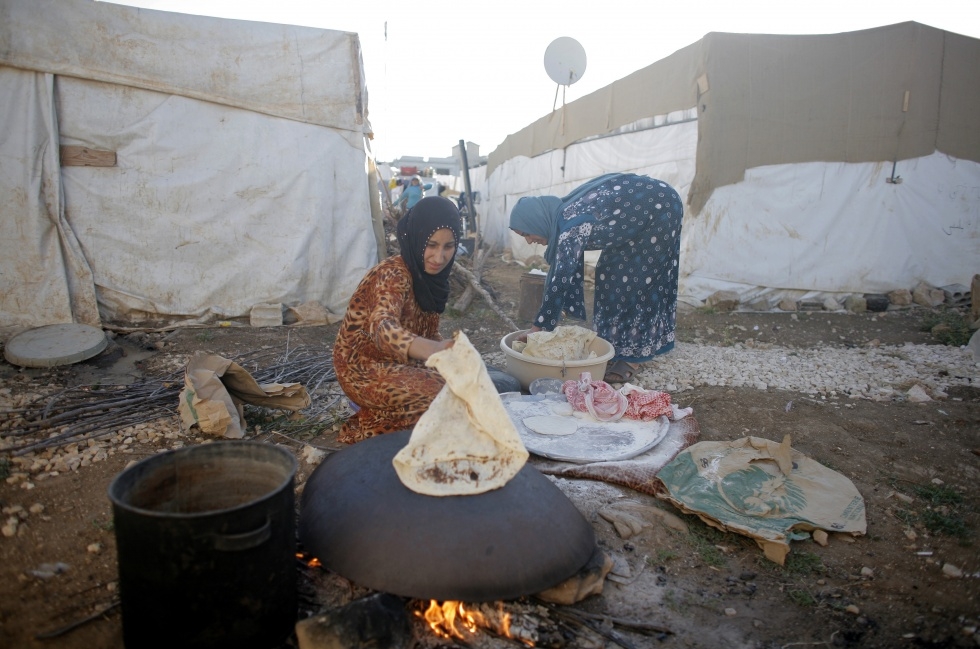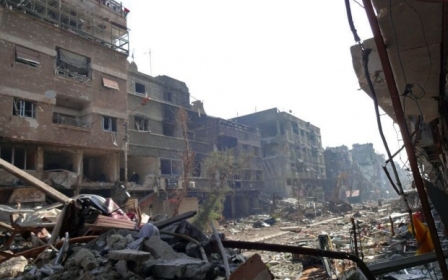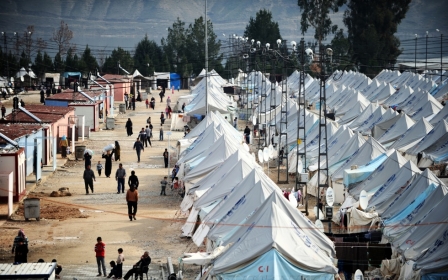Syria refugees soon a third of Lebanon population: UN

Lebanon's Foreign Minister Gebran Bassil stepped up rhetoric warning that the ongoing influx of Syrian refugees into Lebanon may lead to “strife.”
"We believe the situation has reached breaking point, and I am echoing the words of security officials," Bassil said.
"If the situation continues to develop in this direction, there will be strife between the Lebanese and the Syrians."
In recent months Bassil has made several speeches warning about the dire impact of the Syrian refugee crisis but his latest statements are some of the most direct yet.
They come just a day after the United Nations said that Syrian refugees could soon make up more than a third of Lebanon’s total population.
By the end of the year there could be more than 1.5 million Syrian refugees in Lebanon and more than 50 percent of these refugees will be children, the UN said in a new report.
There are already more than a million Syrians in Lebanon, which has a population of slightly more than four million, and already hosts a significant Palestinian refugee population.
The influx has put grave pressure on the Lebanese economy, and left it struggling to cope.
The World Bank estimates that the brutal civil war next door has already cost $7.5bn and has wiped 2.9 percent annually off Lebanon’s gross domestic product since 2012.
The consequences have been dire with 170,000 Lebanese being pushed into poverty as a result of the crisis and unemployment doubling to 20 percent in just three years. The country already suffers from widespread electricity and water shortages, which traditionally reach peak crisis levels in the hot summer months.
"Lebanon pays $100 million a month to provide free electricity to Syrian refugees," said Bassil.
The international aid organisations have made repeated pleas for funding to deal with the emergency, but of the $1.6bn that the UN has requested to support refugees in Lebanon, only 23 percent has been raised.
"We are really facing critical and dire challenges," said Ninette Kelley, the UN refugee agency’s (UNHCR) chief representative in Lebanon.
"With the current level of funding... will not meet the target that we set... [to have] over 172.000 children in school next year."
She also warned that the UNHCR "will not be able to launch a polio vaccination campaign for all children in Lebanon under five", should the necessary funding fail to materialise.
Kelley said 800,000 refugees will be unequipped to face winter, and 30,000 people including Lebanese will not have access to safe drinking water without the necessary financing.
"We need you to stand with us, we need you to stand with Lebanon to ensure that more funding is secured," she said, addressing donor countries.
Also on Thursday, the United Nations launched a similar appeal in Jordan, where some 600,000 Syrians have sought refuge since war broke out in their homeland three years ago.
Last December, the UN appealed for $6.5 billion for Syria war victims. It received $2.3 billion, and officials say the 2014 plan for the region has received just a quarter of the pledged funds.
Lebanon, however, is bearing the brunt of the refugee burden and shelters more Syrian refugees than any of its neighbours.
According to Bassil, even before the Syrian refugee influx, Lebanon already had the highest density population at 370 people per square kilometre.
"If we add 160 or 170 Syrians for each square kilometre, we now have 520 people per square kilometre in Lebanon," Bassil said.
"The number of Syrians is already more than 35 percent, because there are large numbers who have not registered" with the UN, he said.
"In Turkey, however, Syrians only comprise 1.2 percent of the population, whereas in Iraq, the figure is 1.4 percent, and in Jordan it's 18.5 percent."
The pressure has already caused Lebanon to enact an array of controversial measures, such as trying to prevent Palestinian Syrians from entering the country and forcibly deporting them, and also refusing to allow the UN to build permanent camps.
This has left the majority of the refugee population either living in makeshift shelters across the country or paying high rental prices in Lebanon’s already cramped cities.
New MEE newsletter: Jerusalem Dispatch
Sign up to get the latest insights and analysis on Israel-Palestine, alongside Turkey Unpacked and other MEE newsletters
Middle East Eye delivers independent and unrivalled coverage and analysis of the Middle East, North Africa and beyond. To learn more about republishing this content and the associated fees, please fill out this form. More about MEE can be found here.




